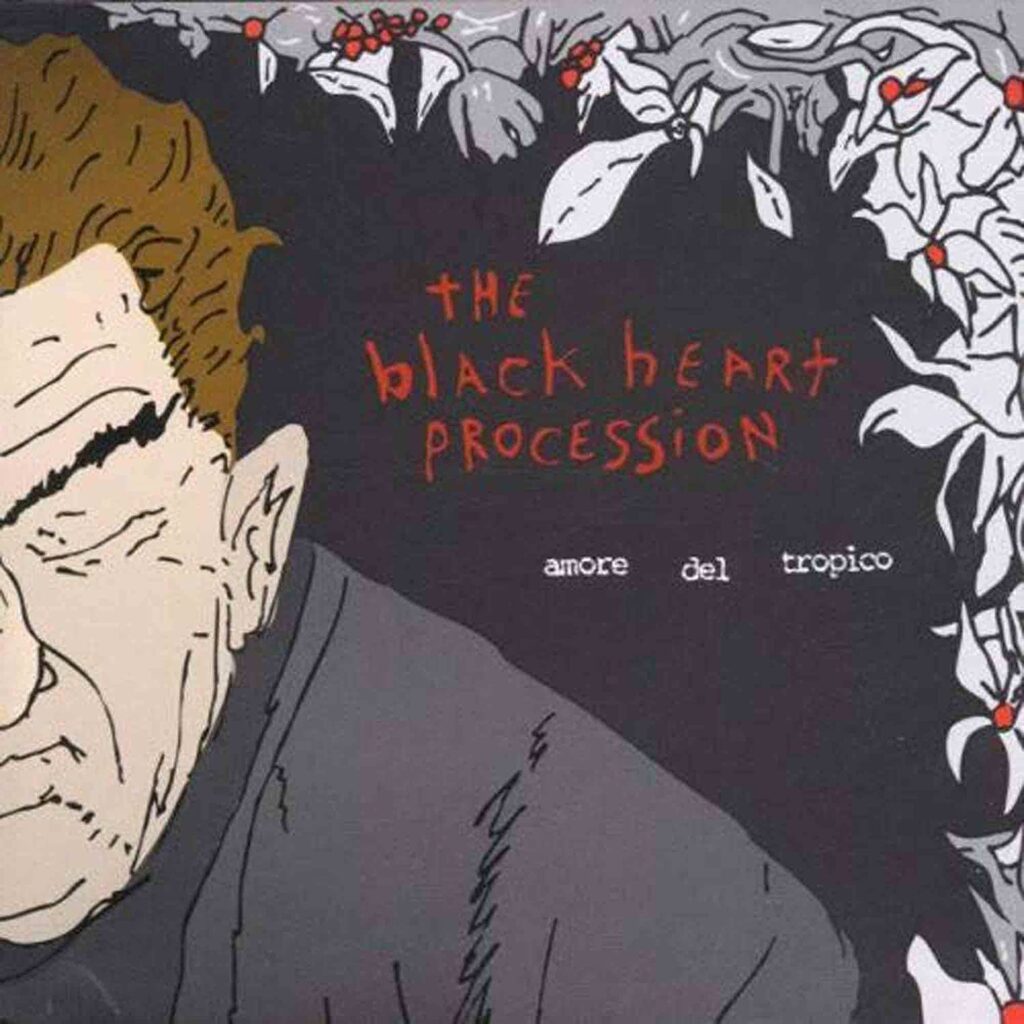
Underappreciated Album: Rapeman – Two Nuns and A Pack Mule
Conventional wisdom seems to be that the only phoenix born of the ashes of Scratch Acid was The Jesus Lizard and the musical career of Steve Albini progressed, uninterrupted, from the closing refrains of Big Black’s bombastic Songs About Fucking right to the rumble and roar of Shellac’s first seven-inch affairs. Then again, conventional wisdom is usually based on misinformation, right?
Released as the curtain closed on the 1980s, Two Nuns and a Pack Mule was clearly an incredible and defining moment for the short-lived Rapeman, the furious post-punk pressure-cooker featuring Albini and the Scratch Acid rhythm section of David Wm. Sims and Rey Washam. The LP’s 10 tracks are vicious and also viciously good, the recording raw but clean enough to allow the band’s virtuosity, chemistry, and battery-acid-in-the-veins energy to come boiling to the surface.
But the record’s more than just another great Touch & Go release. Some 15 years later, it still resonates loud and clear and hits you right in the gut, a document that hasn’t aged or grown increasingly quaint or ill-executed with each passing year. To say it stands up right alongside classics like Big Black’s Atomizer, Shellac’s At Action Park, or Scratch Acid’s Just Keep Eating is no understatement. It’s just an acknowledgment of how vital a recording Two Nuns and a Pack Mule really is.
The record begins, appropriately enough, with an onslaught of noise – the treble-heavy slash-and-burn of Albini’s feedback-driven electric guitar, the slam of Washam’s snare and cymbals, and the pulsing thumps of Sims’ bass. The song unfolds from there, a series of guitar bridges and bass scales carefully wrapping themselves around each other as Washam keeps time or Albini yells and barks asides like “Shut your mouth!” or, appropriate to the title of album-opener “Steak and Black Onions,” “Why don’t you stuff it, man? Plant-eating pussy!”
The first thing listeners circa-1988 may have noticed about the recording, though, is just how much attention Albini and his partners-in-crime were paying to space. While there are sonic tensions and carefully structured bridges scrawled all over the best Scratch Acid or Big Black recordings, Rapeman seemed to be a project more focused on giving as much play to the dynamics as it did to the fire in its stomach. The tracks still have all the explosive tendencies, uncaged fury, and force of their forebears, but they also have quieter (relatively speaking) verses and, one could argue, more attention to technical performance. Nowhere is this clearer than it the LP’s guitar work.
Albini is still ripping the insides out of his six-string on Two Nuns and a Pack Mule, but he was also clearly developing his skills. For evidence, listen to the driving, lightning-speed refrains of “Up Beat,” the almost blues-tinged chops of “Marmoset,” or the funky figures of the ZZ Top cover “Just Got Paid.” And the list runs on.
What one can also hear on Two Nuns and a Pack Mule is recording and guitar techniques Albini introduced in Big Black and then later refined with Bob Weston and Todd Trainer in Shellac. Take, for instance, the way a single-note guitar line slows down and speeds up around a heartbeat-steady bass thumping in “Coition Ignition Mission” or the way shards of guitar feedback substitute for chords in “Hated Chinee” (see the closing of Shellac’s “Copper”).
But, above all, the thing that sells the record is the wellspring of emotion coursing beneath it and nowhere does this surface more than in the chemistry between Rapeman’s three members. Albini is in top form from the first note to the last, and the vitriolic nature of his performance is matched, time and again, by Sims and Washam. Much like he did for The Jesus Lizard on critically lauded outings like Goat and Liar, Sims lends Rapeman a kind of venomous, bluesy swagger, a rough but slithering presence that grounds Washam’s metronomic time signatures and Albini’s balls-to-the-wall guitar assault. Washam also outdoes himself, slipping in jazzy backbeats and unexpectedly inviting grooves that help distance Rapeman from the pummeling and inhuman percussive force of Big Black. The interplay of these elements is so consistent that it’s tough to pull out the record’s finest tracks.
Tracks like “Monobrow” or, better yet, “Up Beat” could shake you out of a coma. The vicious give-and-take of “Radar Love Lizard” and the chemistry displayed on it between Sims and Albini is so perfectly done it can be downright frightening. The Coachmen cover/homage/”rip-off” “Kim Gordon’s Panties” is one of the record’s more surprising moments for all the reasons you wouldn’t expect. Instead of clocking you over the head, Sims’ almost poppy bass and Albini’s toned-down verses play right to the heart. The cover of “Just Got Paid” is mind-blowing, period. It’s nearly – but not quite – one-upped, though, by the album-closing opus “Trouser Minnow,” where Albini channels demons over a walking blues line centered around bass and drums, talking from a female perspective about the evil of sex-obsessed men. (Um, irony, maybe?) It ain’t pretty but it can be pretty riveting.
(The record, which bears a faux-geometric diagram for the band’s logo, also includes some of the more interesting inside jokes and asides you’re likely to see from an Albini project. This includes commentary on songs – an uncredited writer says of “Steak and Black Onions,” “We don’t hate vegetarians. We just think they’re funny” – and opaque contribution notes like “Produced by Fluss, world famous record producer and rocket scientist” or “Bonus Edgar Blossom Muchas Gracias.” Yeah, and remember, don’t look Danzig in the eye.)
When Touch & Go reissued Two Nuns and a Pack Mule on CD in the early 1990s, it included the Budd EP, a largely live offering that includes the Scratch Acid-influenced “Dutch Courage,” “Superpussy,” “Log Bass,” and the eight-minute-long title track. (Not included was an amazing, super-rare Sub Pop 7″, the original “Hated Chinese” Touch & Go 7″, or any live recordings of the future Jesus Lizard staple “Wheelchair Epidemic” that Rapeman worked into its sets.) The Budd songs are great, without question, and they do a lot to further flesh out Rapeman’s back story. But they don’t do nearly as much to cement the group’s legacy as Two Nuns and a Pack Mule.
In the most simple sense, the record is nothing more than 10 tracks recorded by a short-lived trio between more-recognized projects. But taking everything in only the simple sense is as short-sighted and ill-informed as just buying into the conventional wisdom. Both would have you overlooking what may be, alongside Bitch Magnet’s Ben Hur and Bastro’s recently reissued Diablo Guapo, one of the key founding documents of guitar-driven post-rock and, beyond that, one of the better indie-rock records of the last 15 or so years to blast out of your stereo if you’re looking for a sound to knock you onto your back.



